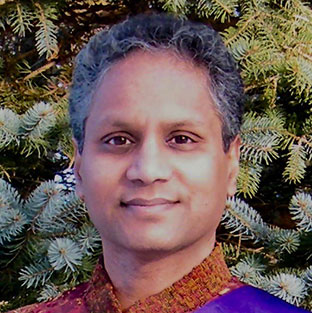Trump’s main export to Canada has been a sense of national smugness, that his outrages and absurdities could never find a purchase here. But, Akaash Maharaj, FRSA argues, it would be an act of monumental self-deception for Canadians to believe that we are an island set above the rage bubbling across the world.
If nothing else, Donald Trump has put paid to the political science cliché, that the power of personal leadership has ebbed away, and that politics are instead decided by the impersonal currents of history.
For better and for worse, personal leadership and personal example matter desperately in contemporary politics. The words of political leaders still wield a unique power to remake nations: they can redefine social norms of what is abhorrent and what is common wisdom; they can reset public priorities and public mores; and they can hold up a mirror that compels societies to behold our truest selves, whether those images disgust or inspire us.
Trump’s now infamous “Why don’t they go back” tweets are significant for what they reveal about his beliefs as Head of State: people born in other countries should not have a political voice, even if they are elected legislators: people who are not part of a country’s racial majority should be regarded as aliens, even if they were born in that country; people who are not like him, are barely people at all.
But the astonishing appeal of Trump’s words is still more significant for what it reveals about the contemporary world. Everywhere – not just in the United States – the ‘settled consensus’ on pluralism, inclusion, and meritocracy has proven to be a far less settled than editorialists had believed. In part, this is because in too many countries, economic inequality has deepened at the same time as the rhetoric of political equality has proliferated. People feeling just resentment about the first, have been ready prey to demagogues who unjustly redirect their anger towards the second.
In part, this is because too few governments have made genuine efforts to build new forms of civic identity, to replace old forms of ethnic identity that are dissipating in a globalised world. People who have not learned to recognise a common identity with their neighbours, are easily manipulated into believing that they are becoming strangers in their own countries.
Economic inequality in Canada is rising: modestly in rural communities and catastrophically in urban centres. Social mobility is collapsing: amongst the fabled wealthiest 1% of Canadian adults, more than two-thirds work or worked for the same corporations as their fathers. Race and class are converging: non-white Canadians are almost twice as likely to be poor as white Canadians.
We are becoming fertile ground for those who would sow the seeds of fear and hatred. What takes root will be decided largely by the quality of our country’s political leadership. In this year’s general election, every party leader will have to decide whether to offer us easy lies or hard truths, whether to pander to a narrow base or champion the common good.
But as important as the words spilled during the campaign will be, the actions of the government elected in October will be more important still. It is easy to describe the national policies that would halt our decay into a society of hereditary privilege and servitude. However, it has proven fiendishly difficult for Canadian governments to summon the courage or the competence to implement those policies.
The threat to our country is not just party leaders who whisper poison to the electorate; it is also those who speak honey in the campaign but deliver vinegar in office. The first encourage us to despise inclusion; the second drive us to see inclusion as a naïve fantasy. The harsh reality is that, while the arc of history may bend towards justice, there is nothing inevitable about progress. Societies can and do regress as well as progress. We can be dragged backwards by our lowest fears, as well impelled forward by our highest ideals.
Across the globe, political figures are picking up the old weapons of xenophobia, demagoguery, and authoritarianism. Despite the winds of time, those weapons have lost none of their edge. We face a choice as citizens. We can choose not to allow ourselves to be manipulated by such figures. We can show the world that inclusive societies are the ones that prosper, while intolerant societies are the ones that fail. We can live out the principles we should expect from our country’s political class. Because personal leadership and personal example matter, from each of us still more than from our political leaders.
Akaash Maharaj is CEO of the Mosaic Institute, which advances pluralism in societies and peace amongst nations, and which is based in Toronto. His personal web site is www.Maharaj.org

Be the first to write a comment
Comments
Please login to post a comment or reply
Don't have an account? Click here to register.